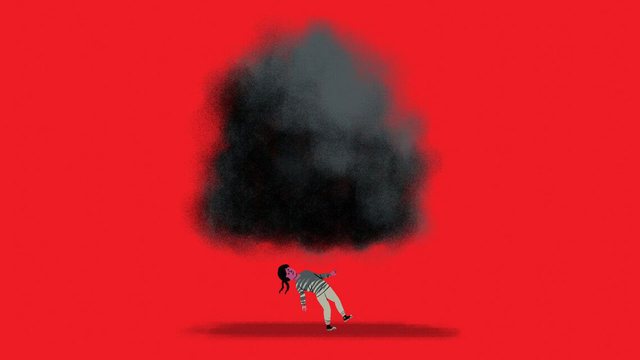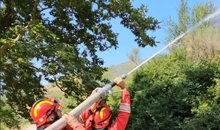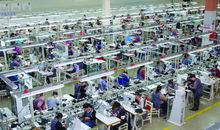
 Flash News
Flash News
Accident at "Shkalla e Tujanit", truck overturns in the middle of the road, driver injured
Vlora by-pass, work delays and cost increases
Milan are expected to give up on the transfer of Granit Xhaka
Inceneratori jashtë funksionit, përfshihet nga flakët fusha e mbetjeve në Elbasan
Accident on the Lezhë-Shëngjin axis, one injured
From the cradle to the office, life experiences in the decisions of bosses

What is your weakness? Why do you love this job? Were you exposed to toxic chemicals in the womb? Some questions in job interviews are very common. Some questions are never asked, writes The Economist.
Early experiences, from the fetus to the first job, can influence how people behave at work decades later.
In a study published in 2023, Raghavendra Rau and co-authors at Cambridge University analyzed the effect of being born in highly polluted parts of America on company executives' willingness to take risks.
The researchers found that bosses who were born in areas later identified as highly polluted, infested with dangerous chemicals, took more risks than their peers, and these risks were usually not rewarded.
The authors believe that pollution has affected the brain development of these leaders.
Mr. Rau and Gennaro Bernile at the University of Miami and Vineet Bhagwat at George Washington University have also examined the effect of early exposure to natural disasters.
In a 2014 study, academics compared data on the incidence of tornadoes, earthquakes, and similar events with the biographical data of American-born executives to understand the connection between natural disasters experienced between the ages of 5 and 15 and the nature of business decision-making.
Bosses who had experienced a natural disaster in childhood that had claimed many lives tended to be more cautious in business and kept more cash aside than executives who had not experienced a major natural disaster.
But if the natural disaster had caused only a few deaths, the experience had led bosses to take greater risks in business. The study authors suggest that if the risks do not have extreme consequences, they may seem worth the risk.
Early life experiences don't just influence risk-taking. Corporate leaders in America who have experienced an extreme natural disaster also run companies with lower carbon emissions.
In China, regional politicians who moved to the countryside at a young age during the Cultural Revolution are more likely than their counterparts to pursue policies that benefit the rural poor.
Even the family environments where people grow up over the decades influence decisions about capital allocation.
Researchers found that bosses who grew up in homes where the father was the sole breadwinner and more educated than the mother continue to give male managers more generous budgets than female managers.
Economic background also influences job decisions. In 2017, Antoinette Schoar of the Massachusetts Institute of Technology and Luo Zuo of the National University of Singapore analyzed the career histories of over 2,000 U.S. company executives to see if they started their careers during a recession.
They found that bosses who had started work during a recession were more conservative and frugal managers, compared to those who had taken over during a booming economy.
This shift stems in part from the effect that economic downturns have on the workplace. Managers who started their careers during recessions are more likely to have started their careers in smaller or privately held firms, and working in these companies influences their leadership style.
The early state of the economy also has an impact on professional investors. A recent study by Jie Chen and co-authors at the University of Leeds found that fund managers who started their careers during a recession had better returns than others.
You might ask why these things matter. After all, it's no surprise that people are shaped by their experiences. Just as demographics aren't just luck, neither are disasters, economic downturns, or development problems.
Individuals can go against the tide or follow it. No one should be selecting job candidates based on their formative early years as people. And if we were concerned about the effects of natural disasters on victims, company executives wouldn't be at the top of the list.
But there are three good reasons to pay attention to studies of this kind. First, they show us that leaders are shaped by events and environments that were beyond their control. Luck plays a significant role in career success and talent.
Second, these studies can serve as an argument for the need for diverse experiences in organizations. And third, they show that events leave behind large, lasting traces.
At a time when America risks sliding into a self-inflicted recession, the consequences for managers and workers would be longer than a business cycle./MONITOR
Latest news








Golem and Qerret without water at the peak of the tourist season
2025-07-01 21:09:32

Euractiv: Italy-Albania migrant deal faces biggest legal challenge yet
2025-07-01 20:53:38
BIRN: Brataj and Fevziu victims of a 'deepfake' on Facebook
2025-07-01 20:44:00

Vlora by-pass, work delays and cost increases
2025-07-01 20:24:29



Milan are expected to give up on the transfer of Granit Xhaka
2025-07-01 19:41:25


The silent but rapid fading of the towers' euphoria
2025-07-01 18:58:07
Donald Trump's daughter says 'goodbye' to June with photos from Vlora
2025-07-01 18:48:47

Tirana vote recount, Alimehmeti: CEC defended manipulation
2025-07-01 18:15:05

Left Flamurtari, striker signs with another Albanian club
2025-07-01 17:43:14
Accident on the Lezhë-Shëngjin axis, one injured
2025-07-01 17:19:35
June temperature records, Italy limits outdoor work
2025-07-01 17:03:15

Meet Kozeta Miliku, named one of the top five scientists in Canada
2025-07-01 16:32:12
"Arsonist" arrested for repeatedly setting fires in Vlora (NAME)
2025-07-01 16:29:45

The ecological integrity of the Vjosa River risks remaining on paper
2025-07-01 16:09:40
Heat Headache/ Causes, Symptoms and Measures You Should Take
2025-07-01 16:01:13
UN: The world must learn to live with heat waves
2025-07-01 15:54:50

Three cars collide in Tirana, one of them catches fire
2025-07-01 15:38:16

Shehu: Whoever doesn't want Berisha, doesn't want the opposition 'war'!
2025-07-01 15:19:20
Berisha requests the OSCE Assembly: Help my nation vote freely
2025-07-01 15:11:46
Be careful with medications: Some of them can harm your sex life
2025-07-01 15:00:32

'Golden Bullet'/ Lawyers leave the courtroom, Altin Ndoc's trial postponed again
2025-07-01 14:44:52
EU changes leadership, Kosovo in a number of places
2025-07-01 14:40:01
Should we drink a lot of water? Experts are surprised: You risk hyponatremia
2025-07-01 14:30:20



Lëpusha beyond Rama's postcards: A village that is being silently abandoned
2025-07-01 13:41:56
Scorching temperatures in France close the Eiffel Tower
2025-07-01 13:29:35
Media: China, Iran and North Korea, a threat to European security
2025-07-01 13:20:12
Albania drops in global index: Less calm, more insecure
2025-07-01 13:09:35
Road collapses, 5 villages in Martanesh risk being isolated
2025-07-01 13:03:04

Këlliçi: Opposition action to be decided in September
2025-07-01 12:48:49
Four tips for coping with the heat wave
2025-07-01 12:38:53
Car hits pedestrian on Transbalkan road
2025-07-01 12:27:09
Authors of 9 robberies, Erjon Sopoti and Abdullah Zyberi arrested
2025-07-01 12:15:56

He abused his minor daughter, this is a 36-year-old man in custody in Fier
2025-07-01 11:50:34
The constitution of the Kosovo Assembly fails for the 40th time
2025-07-01 11:40:08




EU confirms support for the Western Balkans
2025-07-01 10:50:45
Serious in Fier! Father sexually abuses his minor daughter
2025-07-01 10:32:33
One year since the passing of the colossus of Albanian literature, Ismail Kadare
2025-07-01 10:25:26


They supplied the 'spaçators' with drugs, two young men are arrested in Tirana
2025-07-01 09:54:09
Europe is "scorching", how dangerous are high temperatures?
2025-07-01 09:48:56


Nigel Farage in Albania: but why?
2025-07-01 09:13:12
Xama: The "Partizani" dossier is quite weak and without facts!
2025-07-01 09:04:47

Foreign exchange, the rate at which foreign currencies are sold and bought
2025-07-01 08:35:39
Fabricators again warn of factory closures and job cuts
2025-07-01 08:21:30
Horoscope, what do the stars have in store for you today?
2025-07-01 08:08:59
Scorching hot, temperatures reaching 40°C
2025-07-01 07:57:12
Morning Post/ In 2 lines: What mattered yesterday in Albania
2025-07-01 07:42:59
Recount after May 11, Braho: I had no expectations for massive vote trafficking
2025-06-30 22:54:18

Second hearing on the protected areas law, Zhupa: Unconstitutional and dangerous
2025-06-30 22:18:46



Israel-Iran conflict, Bushati: Albanians should be concerned
2025-06-30 21:32:42

Fuga: Journalism in Albania today in severe crisis
2025-06-30 21:07:11
"There is no room for panic"/ Moore: Serbia does not dare to attack Kosovo!
2025-06-30 20:49:53

Temperatures above 40 degrees, France closes nuclear plants and schools
2025-06-30 20:28:42
Lavrov: NATO is risking self-destruction with new military budget
2025-06-30 20:13:54
Turkey against the "Bektashi state" in Albania: Give up this idea!
2025-06-30 20:03:24

Accused of sexual abuse, producer Diddy awaits court decision
2025-06-30 19:40:44


